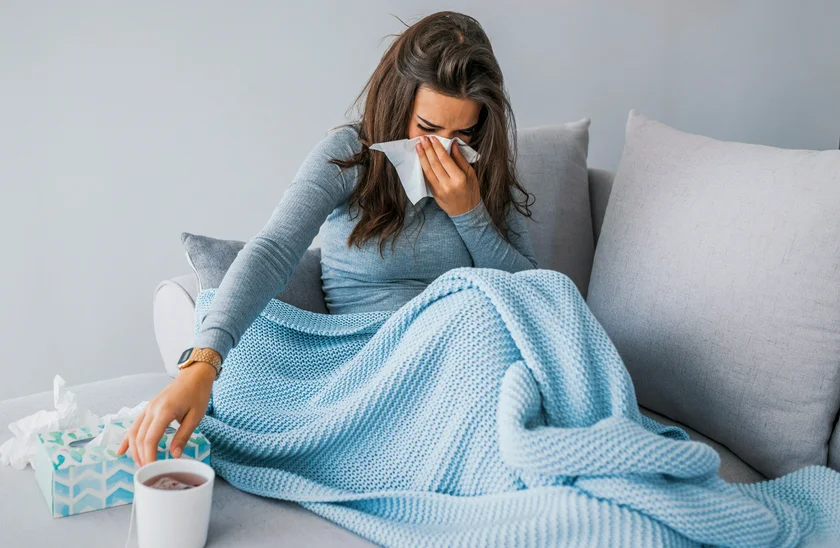This article was written in association with Canadian Medical. Read more about our sponsored content policy here.
The Covid-19 pandemic affected the world for nearly three years making it necessary to take precautions with every cough. But Covid isn’t the only illness to be wary of. With the onset of flu season, it’s important to remember the basic differences between the flu, Covid-19, and the common cold.
Though the symptoms of all three illnesses are similar, there are some significant differences in their impacts and appropriate treatments.
We asked the professionals at Canadian Medical to share their expertise on recognizing the differences between these different but similar illnesses while offering tips on what to do should you begin to experience any of them.
Recognizing and treating the common cold
The common cold and influenza are often confused with one another. Though very similar illnesses, there are numerous differences between them. Colds are often accompanied by rhinitis and are most frequently contracted during autumn and winter.
An otherwise healthy individual will recover from a cold within a week, though some symptoms may persist for up to three weeks. Most colds are not caused by prolonged exposure to a cold environment, a common wives' tale, but by viruses transmitted via droplets or by direct contact. The most common symptoms of a cold include sore throat, a dry and irritating cough, fatigue, headache, and, in some cases, a slightly elevated temperature.
There's no getting rid of a cold overnight but you can gradually suppress the symptoms. Rest gives the body a chance to gather energy to fight the virus. Rhinitis can be treated with nasal sprays, and drops, syrups, and tablets can be used for coughs.
Medications containing paracetamol and ibuprofen work best to reduce pain and lower one’s temperature. When you have a cold, it is also beneficial to increase fluid intake and inhale the vapor of chamomile tea with honey, which has anti-inflammatory effects.
There is no way to prevent the common cold with 100 percent certainty. The best thing to do is strengthen the body’s immune system, follow the basic rules of hygiene and have a sufficient intake of vitamins. If a young child, infant or pregnant woman has a cold or if the illness persists for more than ten days, it is advisable to see a doctor, who can rule out the potential risk of a more serious illness.
Recognizing and treating the flu
Influenza is an acute and highly contagious viral disease that attacks the whole body. It is typically characterized by symptoms similar to that of the common cold. However, flu symptoms also include fever (higher than 38 degrees Celsius), chills, headache, muscle or joint pain, and, in the later stages, a dry cough. With flu, the nasal mucosa is swollen, but without the watery secretion that is typical of the common cold.
While people with colds often go to work and are able to perform normal activities, the flu often forces people to stay in bed for at least a few days. Though patients often have a tendency to leave the flu untreated, doing so needlessly exposes them to bigger problems, such as a longer recovery period and the risk of complications such as pneumonia.
In some cases, the virus can spread throughout the body and, in combination with another disease, can lead to collapse or even, in extreme cases, death.
Flu treatment is very similar to treating a cold. It is absolutely essential to rest and to get a sufficient intake of vitamins and fluids. Pain, fever, and cough medications can be combined with teas to suppress particular symptoms.
"In the case of an uncomplicated course of the flu, it's unnecessary to see a doctor, or you can do an online consultation. Symptoms usually peak around the third day and should improve by the fifth day at the latest. If you are not feeling better even on the fifth day, or if you feel worse even before then (particularly if you have trouble breathing), it is advisable to seek medical attention," says Dr. Dalibor Stoszek, general practitioner and chief physician at Canadian Medical’s AFI clinic.
Dr. Stoszek says that it's ideal to prevent the flu before it happens with a flu shot. While it doesn't guarantee that you will not get the flu, if you are vaccinated, you will likely recover from it much more easily and probably won't see any serious complications.
"Flu shots are administered from the end of September to the end of December and cost roughly one-third of the price of flu medication at the pharmacy. Flu vaccination has negligible side effects, which often include pain and redness at the point of injection or increased temperature or headache the day after. However, that is no reason to be concerned, as it is a sign that your body is forming antibodies,” says Dr. Stoszek."
Recognizing and treating Covid-19
With the Covid-19 menace circulating for the past three years, most people know the symptoms all too well. This highly infectious respiratory disease is transmitted by droplets when coughing, sneezing, or talking, as well as through contact with contaminated surfaces. The disease’s incubation period is between two and 14 days. However, most infected people show symptoms within six days of contact with another infected person.
The main symptoms of the disease include sore throat, cough, fever, shortness of breath, muscle and joint pain, and – less frequently in the case of the latest variants – loss of taste and smell. Diarrhea may be a common symptom, especially among children. Patients also very frequently experience fatigue and sore throat, or rhinitis. At the same time, it is important to remember that some patients with Covid experience no symptoms. In the case of children, the disease manifests itself very similarly to adults. However, the symptoms in children also include problems with the digestive tract in the form of nausea or vomiting.
Home isolation (currently for seven days), rest, and treatment of symptoms are prescribed for Covid-19 patients. Over-the-counter fever and cough medications can be used. (Fever and cough medications are most frequently used.) If you are over the age of 65 or suffer from chronic lung, heart, or kidney disease or other ailments, there is an effective antiviral medication available in tablet form. However, it is necessary to contact your doctor as soon as possible after the onset of symptoms, as the effectiveness of the antiviral decreases with the duration of the illness.
If left completely untreated, the disease carries the risk of permanent consequences. More serious cases of Covid-19 can cause severe pneumonia, for example, and thus require hospitalization, oxygen therapy, and artificial lung ventilation. The most serious cases of Covid-19 can even end in death. If a patient suspects they have Covid, it is still important to undergo antigen testing, either by using a self-test kit or at a medical facility, or via PCR testing at the available sampling points and laboratories.












 Reading time: 5 minutes
Reading time: 5 minutes 


























